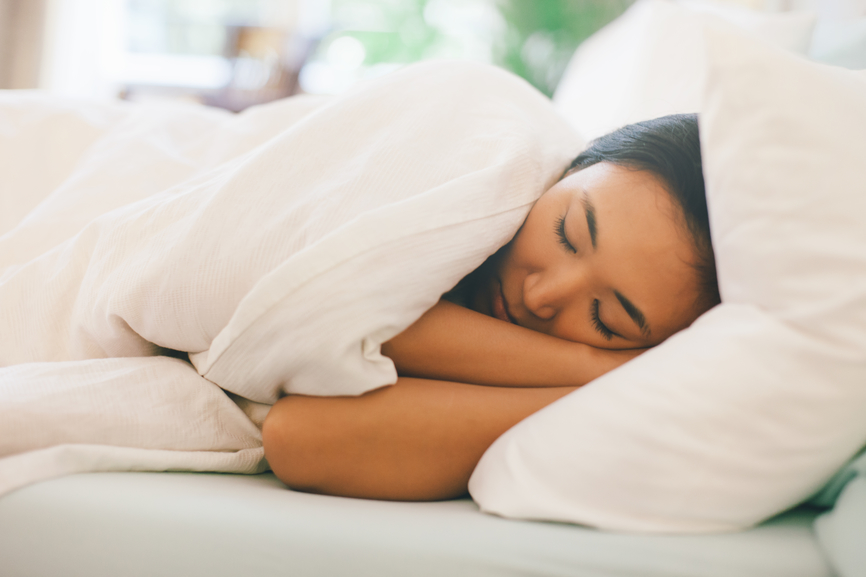How Your Circadian Rhythm Helps You Sleep

Feeling sleepy at night and awake during the day may seem like a given, but behind the scenes, a complex rise and fall of chemicals and hormones is involved. Learn how your body creates this natural rhythm.
Although it may seem straightforward that you sleep when you’re tired and wake when you’re rested, the mechanisms behind these behaviors are fairly complex. In fact, the strong urge to sleep isn’t necessarily dependent on how strenuous your day has been. Rather, your urge to sleep is guided by two factors: your sleep drive and your circadian rhythm. Sleep drive refers to a homeostatic system in your brain which makes you feel sleepy. With every hour that you are awake, your sleep drive gets stronger. The sleep/wake circadian rhythm is your body’s internal system that triggers both feelings of sleepiness that send you to bed and feelings of alertness that tell you it’s time to get up. Understanding how your sleep/wake rhythm works may help you get a better night’s sleep.
What Is a Circadian Rhythm?
Your circadian rhythm is the 24-hour cyclical ebb and flow of hormones and chemicals in your body that determine when you feel the need to go to sleep and get up. Most people need between seven and nine hours of sleep, followed by 15 to 17 hours of feeling awake. Your body and brain work together in multiple ways to create and regulate this process.
While 24 hours is the approximate length of the sleep/wake circadian rhythm, some people’s rhythms are slightly longer or shorter. In general, women have a circadian rhythm slightly shorter than 24 hours, and for this reason, they tend to be more “morning people.” Meanwhile, men typically have longer circadian rhythms and are more apt to be “night owls.”
The Role of the Brain
Inside the hypothalamus found in the brain is the suprachiasmatic nucleus (SCN) made up of 20,000 nerve cells. The SCN is sometimes referred to as the “master clock” because it plays an important role in the body’s daily rhythms. It receives input from the eyes, which is important since daylight and darkness play major roles in regulating the circadian rhythm. When light changes in the environment, the SCN signals to the body to produce larger or smaller amounts of different chemicals and hormones to influence how sleepy or awake you feel. For this reason, in winter months when days are shorter, you likely feel the urge to sleep sooner than in the summer when there is more sunlight. In places like Iceland where the sun never fully sets during peak summer days, blackout curtains or eye masks are helpful tools to help you sleep.
How Melatonin Works
One important hormone influenced by your SCN is melatonin, a chemical which makes you feel drowsy. In late afternoon as it gets darker out, your SCN tells the pineal gland in your brain to start releasing melatonin. The body’s level of this hormone begins to rise in response and continues to climb through the night. Melatonin levels begin to decline during the early morning as your body gets ready to wake up. Just as darkness is the signal that tells the body it’s time to release melatonin, bright lights can inhibit your body’s ability to produce this sleep-inducing hormone. Maintaining a dark bedroom at night and getting sunlight as soon as you wake can help you keep your melatonin levels in sync with your circadian rhythm.
Can You Change Your Circadian Rhythm?
Since your body’s sleep/wake rhythm is strongly influenced by exposure to light and its effect on your SCN, manipulating the amount of light in your space can affect your rhythm. If your schedule calls for an early-morning wakeup, exposing yourself to bright light, like sunlight, the instant the alarm goes off may help, since it encourages your SCN to release hormones that help you feel awake.